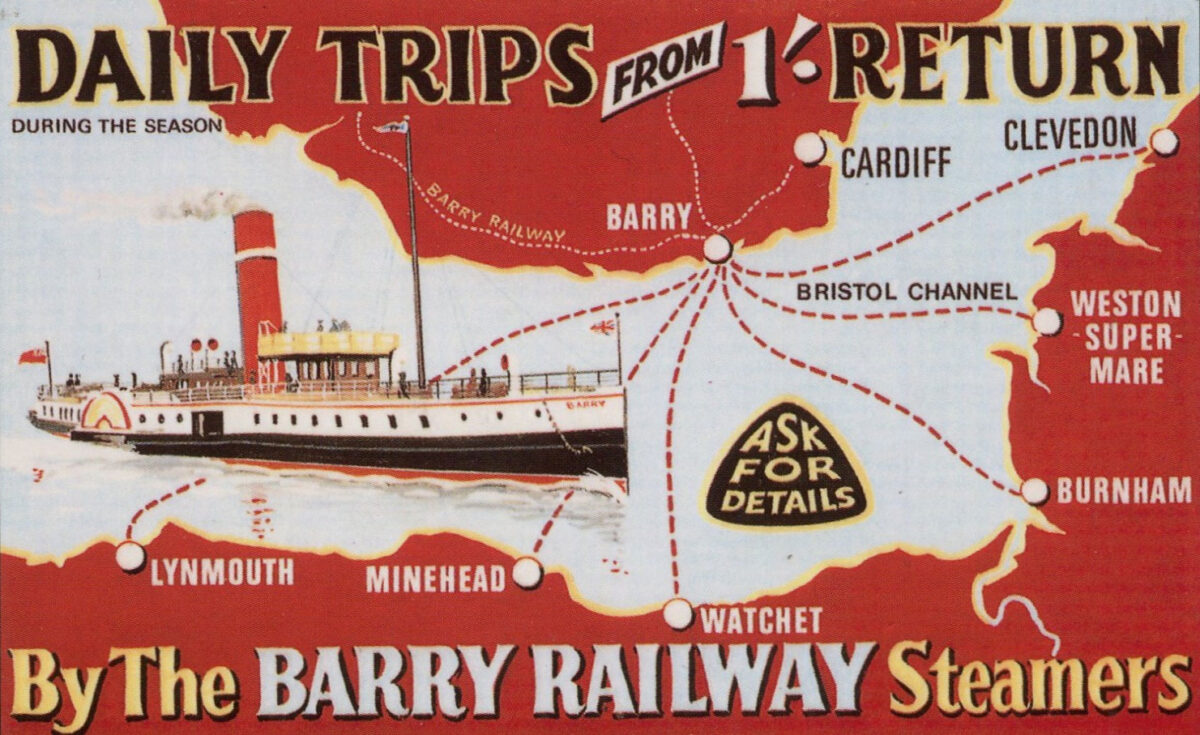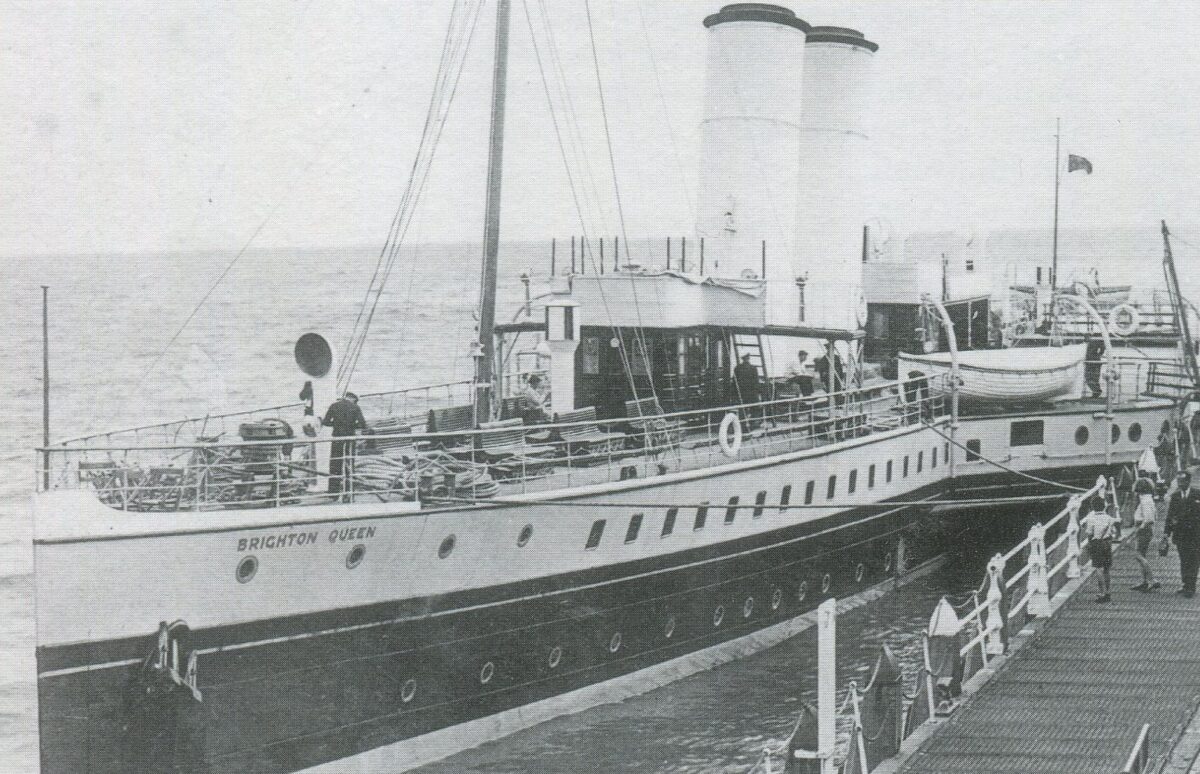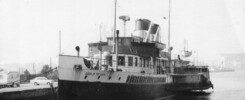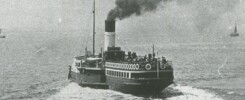
On Thursday 26th November 1903 the Barry Railway Company sent out a press release announcing their intention to run passenger steamers on the Bristol Channel. This was taken up by the Barry Dock News which published a short piece the following day announcing that a new Barry Railway Company Bill had been lodged with Parliament which, if passed, would permit:
“The Company to provide an adequate and convenient passenger boat service for the thousands of holiday-seekers from the Rhondda and neighbouring valleys who make excursions across the Channel during the summer by the establishment of a regular service of boats daily from the pier head landing stage at Barry”
As railway companies go, the Barry Railway Company was on the small side with a network connecting Barry to Cardiff, Bridgend, Pontyprydd and Rhymney. However as a railway company it nonetheless needed a new act of Parliament to start running boats.
At that time the Bristol Channel excursion trade was in the hands of P & A Campbell and they did not welcome competition particularly from a railway company. They remembered how the expansion of the railway network of boat services had driven them out from the Clyde in earlier years and they didn’t want to see a repeat of that on the Bristol Channel by another, as they saw it, fat cat railway with a network of ready made passengers muscling in on their business.
However, in 1904 the Act of Parliament was passed but it did contain restrictions on what could and what could not be done with the primary focus of boat operations having to be trips with railway connections to and from Barry. That precluded the company, in theory anyway, from operating other and perhaps more lucrative services elsewhere.

From 1905 the Barry Railway started their services with two brand new paddle steamers Gwalia and Devonia both with red funnels with black tops to which they subsequently added Westonia and Barry. These were popular with locals coming into Barry on the railway connections but overall the business was not a financial success.
The situation was further complicated by Campbells also making calls at Barry Pier which was owned by the Barry Railway Company. Relations between the two deteriorated in the ensuing years with legal writs ever flying backwards and forwards between them about one thing or another.
With mounting pressure from shareholders about maintaining loss making services the Barry Railway boat services were closed early in 1910 with the steamers sold on for work elsewhere.
Gwalia was first bought by the Furness Railway Company, then after the First World War by Tucker’s Red Funnel fleet back on the Bristol Channel before being bought by P & A Campbell in 1922. They subsequently renamed her Brighton Queen. She was lost at Dunkirk in 1940.
Devonia was sold for further service with P & A Campbell and lasted until 1940 when she too was sunk during the Dunkirk evacuation.
Westonia was also initially sold to P & A Campbell but they passed her on for service in Portugal in 1912. She was scrapped in 1929.
All that lay in the future. On 26th November 1903 the citizens of Barry and the surrounding Welsh valleys could look forward to an expansion of paddle steamer services.
Kingswear Castle returned to service in 2023 after the first part of a major rebuild which is designed to set her up for the next 25 years running on the River Dart. The Paddle Steamer Kingswear Castle Trust is now fund raising for the second phase of the rebuild. You can read more about the rebuilds and how you can help if you can here.
John Megoran
This article was first published on 26th November 2020.


